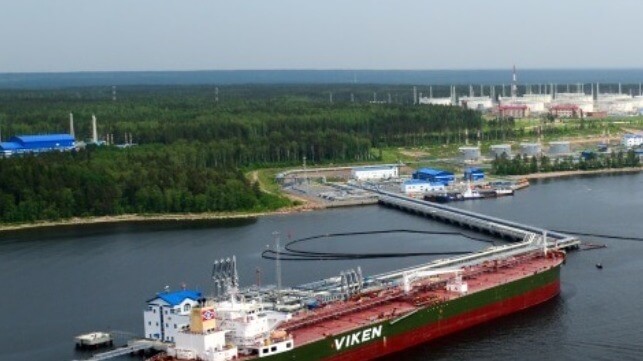European Council Agrees to Ban Seaborne Imports of Russian Oil

The European Council has agreed in principle to ban seaborne imports of oil from Russia, leaving a carve-out for pipeline shipments in order to secure the vote of Hungary and other states with high dependence on Russian crude.
"The sanctions will immediately impact 75 percent of Russian oil imports. And by the end of the year, 90 percent of the Russian oil imported in Europe will be banned," said European Council President Charles Michel in a statement.
The Council also agreed to ban Sberbank, Russia's largest bank, from the SWIFT financial messaging system. It also banned Russian vessels from the EU insurance market, a move expected to severely crimp the access of Russian shipowners to P&I coverage.
The EU will also provide Ukraine with about $10 billion in direct financial assistance to help it meet its immediate budgetary needs.

that matters most
Get the latest maritime news delivered to your inbox daily.
The council still has work to do on finalizing the details of the package. However, the sudden end of 75 percent of the EU's Russian oil imports would have an immediate effect on the Kremlin's income. Europe is Russia's largest destination market for oil exports, accounting for nearly half of its foreign petroleum sales, and an EU embargo will require Russian producers to ship farther in order to reach alternative markets in Asia. This will require a discounted sale price in order to offset higher transport costs.
Russia depends heavily on oil and gas revenue for government income. Despite sanctions, the Russian government's energy revenue has soared since the start of the invasion thanks to soaring prices. State oil and gas revenues doubled (year-on-year) to $75 billion over the first four months of the year. With the EU set to force half of Russian crude exports into discounted overseas markets, Russia will likely see its energy profits reduced.
